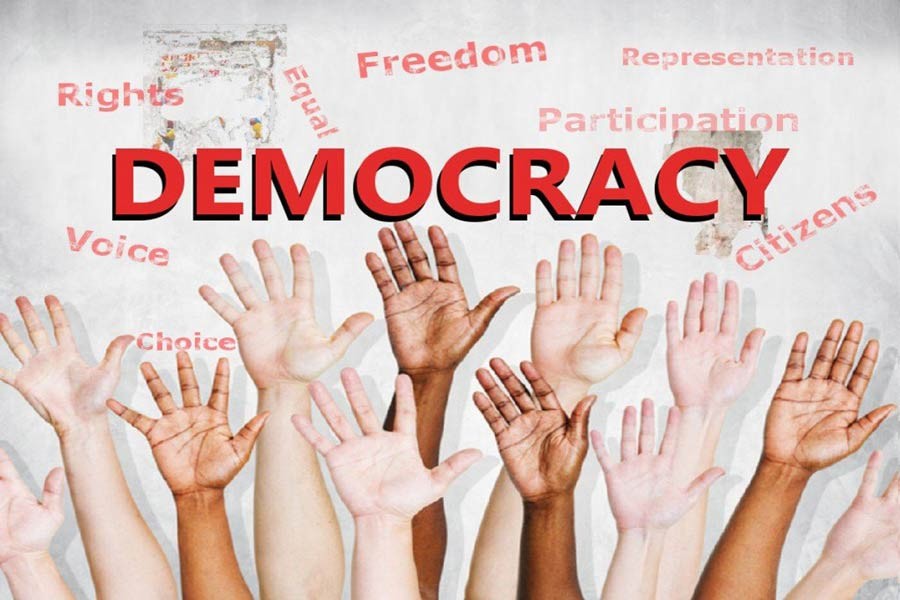As the old adage goes: "An ounce of prevention is worth a pound of cure". Nowhere is this more appropriate than when it comes to conflict. Violent conflict causes not only human suffering and destruction but robs entire societies of development and growth.
By some estimates, a country that suffers a four-year civil war loses nearly 20 per cent of its gross domestic product (GDP) per capita. Syria has lost 19-36 per cent of its productive capacity by 2016 due to conflict, its economy producing US$ 20-38 billion less in value each year.
What is more, secondary effects of conflicts have no borders, affecting economies all over the world. For example, it is estimated that the conflict in Somalia and piracy attacks in the Gulf of Aden and the Indian Ocean led to an increase in shipping costs of about 10 per cent.
Moreover, because conflict tends to disproportionally affect low- and middle-income countries it compounds the challenge of development - once conflict starts, development slows down or ends. Ending conflict not only ends human suffering - a worthy goal in and of itself - but leads to significant economic benefits as well.
Preventing conflict from starting, on the other hand, would magnify those benefits immeasurably. Even after the end of conflict, countries need years, if not decades, to recover. Along with rebuilding shattered societies and infrastructure, countries have to rebuild confidence in their economic systems and attract investment.
The UN Secretary-General recognised this immense potential in his "Peacebuilding and sustaining peace" report, where he called for "prevention of conflict and addressing its root causes".
It is also the key conclusion of the "Pathway for Peace", a joint UN and World Bank study, and has been identified by the European Union (EU) in the "Pre-emptive Peace" section of the EU's Global Strategy, which states that the EU will "redouble our efforts on prevention, [and] monitoring root causes" of conflict.
We do not have the blueprint for preventing conflict. We do, however, have years of experience in attempting to do so, and one of the key lessons we learned is a clear and firm link between strong democratic foundations and resilience.
Countries with institutions such as inclusive and empowered parliaments, free media and robust civil society sector are less likely to experience conflict, and even if they do, they tend to recover much quicker.
We also know that an essential building block of a strong democratic system is inclusive and transparent elections, giving citizens a voice and making leaders accountable to their people. At the same time, elections can also be a trigger (although seldom the cause) of conflict, often serving as a catalyst for long-simmering grievances.
Prevention of electoral conflict was a topic of a recent high-level conference in Brussels, organised by the EC-UNDP Joint Task Force on Electoral Assistance (JTF) and attended by over 200 practitioners from over 60 countries and is a focus of a joint EU-UNDP study and toolkit on "Sustaining Peace through Elections".
While the study found that there is "no blueprint for preventing electoral violence", it clearly identified a common thread - support to strong democratic institutions and social values is an essential component of any conflict-prevention strategy.
Building democratic institutions and reinforcing social values capable of withstanding potential shocks of electoral violence requires sustained support, well before and well after the elections. Attempts to address electoral conflict in the weeks or even months leading up to an election is, in most cases, too little, too late.
To change this paradigm, we need to rethink the way we offer electoral assistance. Acknowledging that no single political or technical solution is sufficient, the conference presented to participants a "Democracy Strengthening" approach.
Such strategy attempts to view assistance through a wide-angle lens, to include all the stakeholders in a comprehensive, long-term vision from the very start of our involvement.
Too often, we initiate our assistance driven by short-term focus on an electoral event or a single electoral cycle, only to keep extending and adding on project after project, without a comprehensive strategy.
Instead, we should embrace a long-term view from the start and design our assistance with a goal of not simply holding a better election or having a more competent parliament, but to develop strong, empowered and independent democratic institutions.
To capture this broader timeframe and increase coordination between communities of practice and institutions more effectively, the JTF will propose the development of "Democracy Strengthening" approaches in future electoral programmes. Ultimately, our goal is to build social and institutional resilience to prevent conflict from starting in the first place.
Abdoulaye Mar Dieye is UN Assistant Secretary General and Director of UNDP's Bureau for Policy and Programme Support.
—Inter Press Service


